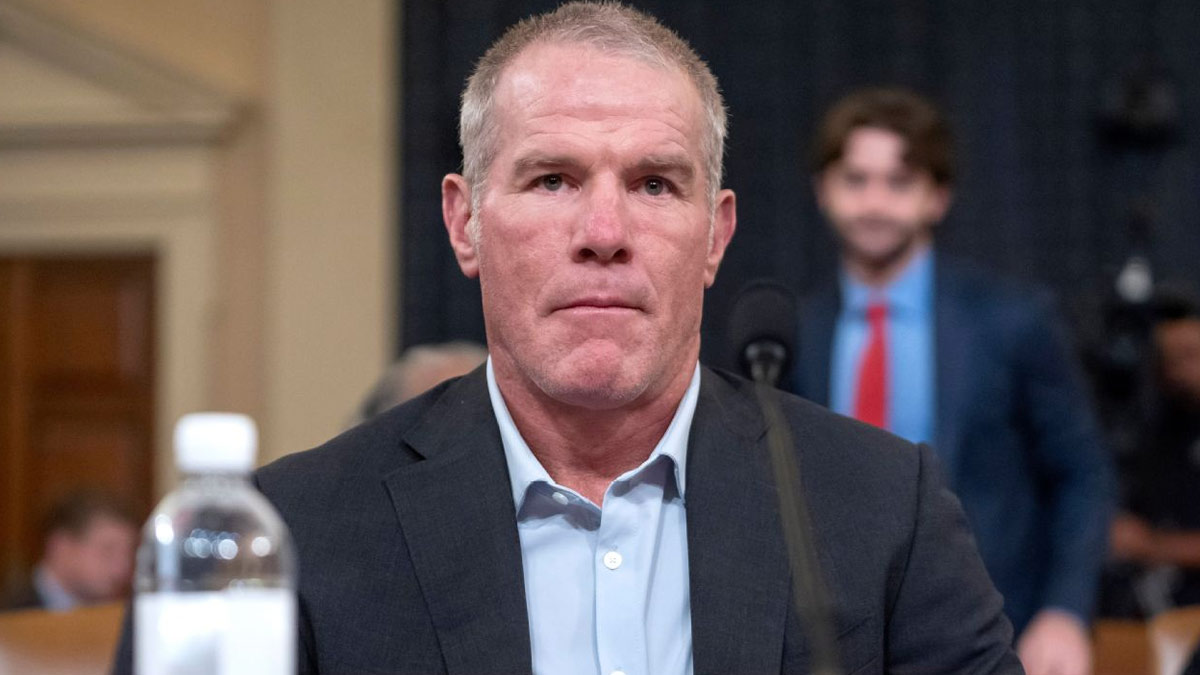
The recent revelation that Hall of Fame quarterback Brett Favre has been diagnosed with Parkinson’s disease has reignited the debate about the link between contact sports, such as football, and the long-term risk of neurodegenerative diseases. Favre, a legendary NFL quarterback who spent 20 seasons primarily with the Green Bay Packers, made the announcement while testifying before Congress. His diagnosis has highlighted growing concerns regarding the dangers of repeated head injuries in collision sports and their possible connection to conditions like Parkinson’s, chronic traumatic encephalopathy (CTE), and other brain diseases.
Table of Content:-
Brett Favre's Diagnosis and His NFL Career
Favre disclosed his Parkinson's diagnosis during a Congressional hearing focused on unrelated matters but took the opportunity to talk about his health challenges. The 54-year-old explained that while advocating for what he thought was a concussion treatment breakthrough, he realized it was too late for him due to his recent diagnosis. During his testimony, Favre reflected on his football career and the toll it had taken on his brain.
In a 2022 interview, he admitted to suffering thousands of concussions, often brushing off the symptoms, including seeing stars or flashes of light after a hit to the head, and continuing to play. “I was still able to play, but it’s the ones that seem minor that do the most damage,” Favre said in that interview, shedding light on the insidious nature of brain injuries that accumulate over time.

The Dangers of Repetitive Head Trauma in Sports
Football, like boxing and rugby, involves repeated head impacts that can lead to brain trauma over time. Concussions, even those that seem minor, can have long-lasting effects on brain health. Favre’s revelation brings attention to the potential consequences of such trauma, as research has indicated a strong link between contact sports and various neurodegenerative conditions.
Parkinson’s disease is a progressive disorder that affects movement and coordination, leading to symptoms like tremors, muscle stiffness, and difficulty walking and speaking. While age and genetics are major risk factors for Parkinson’s, repeated head trauma has also been identified as a possible trigger. Studies have shown that a single concussion can increase the likelihood of developing Parkinson’s by over 50%. Additionally, research indicates that football players may have a significantly higher risk of experiencing Parkinson’s symptoms compared to the general population.
Also Read: Major Pharma Firms In India Face Scrutiny For Quality Lapses: 53 Drugs Under Investigation
Studies Connecting Football and Brain Disease
The connection between football and brain diseases like Parkinson’s is not new, but the increasing number of athletes revealing their diagnoses has led to more focused research. A 2023 study revealed that football players had a 61% higher chance of developing Parkinson’s or experiencing its symptoms. Another study in 2018 similarly linked repetitive head impacts from contact sports to an increased risk of neurodegenerative conditions.
While determining a direct cause of diseases like Parkinson’s is complex, researchers are examining the role that repeated concussions and traumatic brain injuries (TBI) play in the development of these conditions. Favre’s case is just one among many, and with more former athletes speaking out, the scientific community is striving to understand the full scope of the problem.
View this post on Instagram
The Overlap Between CTE and Parkinson’s Disease
One area of research that has garnered significant attention is the link between CTE and Parkinson’s. CTE, a degenerative brain disease found in individuals with a history of repetitive brain trauma, has been diagnosed in many former football players posthumously. Recent studies have shown that CTE may act as a trigger for Parkinson’s symptoms, which adds another layer of complexity to the relationship between football and brain health.
In some cases, individuals diagnosed with CTE have shown signs of parkinsonism, a group of movement disorders that include Parkinson’s disease. A recent study of brain donors diagnosed with CTE found that nearly a quarter exhibited parkinsonism symptoms. Favre himself has expressed uncertainty over whether he has CTE, stating in a previous interview that he wasn’t sure of the full extent of the damage his brain had sustained.
Also Read: Hardik Pandya’s Intense Workout Features Bulgarian Split Squats To Boost Balance And Strength
Protecting Athletes: The Importance of Early Intervention
The implications of Favre’s diagnosis extend beyond his personal health, raising questions about how to protect future athletes from the same fate. One of the most critical aspects of brain injury prevention is ensuring that athletes have enough time to recover from head trauma before returning to play. It has been widely recognized that repeated blows to the head, especially without proper recovery time, can make the brain more vulnerable to lasting damage.
Experts stress the importance of early detection and prevention, advising players to rest and seek treatment after any head injury, no matter how mild it may seem. The risk of long-term damage increases if concussions or other brain injuries are ignored in favour of immediate returns to the field.
Bottomline: A Call for Awareness and Action
Brett Favre’s Parkinson’s diagnosis has cast a spotlight on the serious risks associated with contact sports, particularly football. With mounting evidence that repetitive head trauma can lead to neurodegenerative conditions like Parkinson’s and CTE, this serves as a reminder of the importance of understanding the long-term impact of these sports on brain health.
As more athletes come forward with similar stories, the need for better safety protocols, concussion management, and long-term health monitoring becomes clearer. The hope is that these revelations will lead to changes in the way head injuries are handled, both on and off the field, to better protect current and future generations of athletes.
How we keep this article up to date:
We work with experts and keep a close eye on the latest in health and wellness. Whenever there is a new research or helpful information, we update our articles with accurate and useful advice.
Current Version